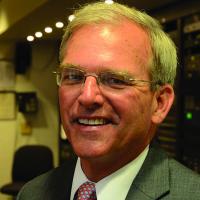December 28, 2022

On Nov. 8, a majority of Massachusetts taxpayers voted to change the Commonwealth’s Constitution to create a tax of 4 percent for income over a $1 million in addition to the existing 5 percent flat-rate income tax. The new law stated that the money would “provide the resources for quality public education and affordable public colleges and universities, and for the repair and maintenance of roads, bridges and public transportation.”
There’s a wide divergence of opinion as to how much money will wind up in the state’s coffers as a result of the constitutional change. The Massachusetts Teachers Association believes it will be $2 billion, but most organizations that study Massachusetts tax law think it will be closer to $1.2 billion. Tax accountants are already informing their wealthy clients about how to get around this new law, via trusts set up in other states and other tax avoidance measures, so it could be even less.
Whatever it winds up being, it is very important that the money be used wisely. These dollars should ensure that our commonwealth has both the educational capacity and infrastructure for a healthy economy to flourish. Here are my recommendations for its use, consistent with the stated goals of the successful ballot question:
• Fully fund full-day pre-kindergarten seats. This includes K-1 (for 4 year olds) and K-0 (for 3 year olds). Research shows that children who are in high quality early education programs perform better in school and are more likely to read at grade level by third grade, which is a major determinant of student success. Funding this has the added benefit of decreasing income inequality. With Massachusetts having the seventh worst rate of income inequality in the US, funding quality K-0 and K-1 would significantly increase incomes for low-income families.
• Double student scholarships to public universities and make community college free. A Hildreth Institute study of the state’s investment in higher education shows that funding has declined by 20 percent per full time student, with financial aid dropping 35 percent between 2001 and 2020. The same study shows that the cost of attending community college has increased by 52 percent and state universities by 59 percent while real household income growth increased only 13 percent over the same period. The result is that our students have the eighth highest rate of student loan indebtedness in the US, according to the Institute for College Access and Success.
Massachusetts has no natural resource to build an economy on. What we have are smart people, on whom our economy is generated. Recent data show that fewer graduating students from our high schools are choosing to attend college. We need more incentives to encourage them to do so. Gov.-elect Healey has indicated support for the MassReconnect program, which will provide the opportunity for residents over the age of 25 to earn free community college certificates and degrees. We need everyone in Massachusetts to have a degree or certificate to maintain a robust economy. Giving free access to community colleges is the first step.
• Fix the MBTA. A Massachusetts Taxpayers Foundation (MTF) analysis of the MBTA from last August details both the problems and the potential solutions to our troubled public transit agency. The report starts with an ominous statement: “Failure to fix [the T] has profound impacts on the region’s economy and the companies and people forced to rely on public transit.” Speaking personally, I’ve been trying to use the MBTA to get to meetings, since some meetings are moving from zoom to in-person. Every single time there has been a problem, with the result that I have been late for meetings or have spent 40 or more minutes getting to or from downtown (from the Savin Hill Red Line stop, a 3-mile trip). It’s hard to call this “rapid transit.” Were it warmer, I’d ride my bike, as driving a car can take as long or longer than riding the T.
There’s a lot of blame to go around, but that won’t help. The MBTA needs to fix its infrastructure but is limited in borrowing money because it is paying off debt it does not deserve to have, like $3.8 billion from the Big Dig. Its greatest need is to pay for deferred maintenance, like replacing the 50-year-old trains that have “equipment failure” leading to delays in service.
The MBTA should be the first transportation priority for the millionaires’ tax. Every person riding the T is someone who might otherwise be in a car on a highway that cannot handle additional traffic, resulting in additional carbon emissions that our state has promised to eliminate. Public transit is an essential item for our economy, to mitigate the effects of global warming, and for equity. We don’t need another study to determine what is needed. The MTF, the Federal Transit Administration, and other agencies have looked at the problems of the T. The MTF summarized the need as “three key components: working physical infrastructure, fiscal health, and a functioning organization.” We need the political will to make that happen.
The millionaires’ tax money should be invested in the long term needs of Massachusetts, which is not something our commonwealth does well. The suggestions above will have a positive long-term impact on our economy, the environment, indebtedness of our residents and the wealth gap.
The people and the organizations opposed to the millionaires’ tax argued that we can’t trust the Legislature with the dollars that will be generated by it. They almost succeeded in convincing enough voters – 48 percent voted no. It will be a shame if the legislators prove them right.



